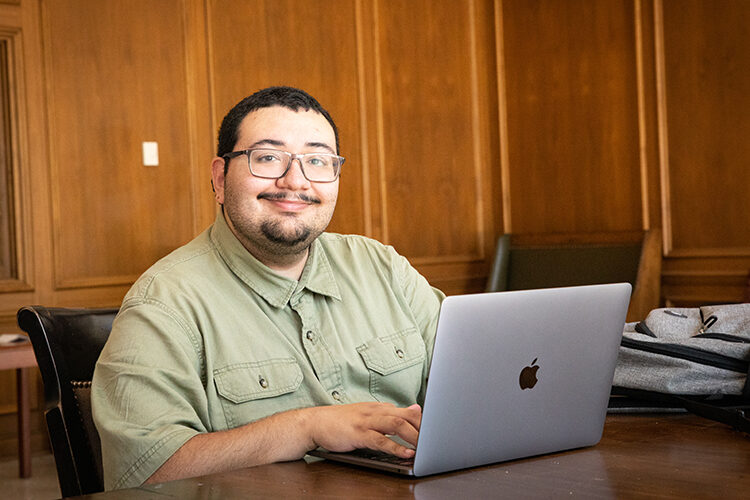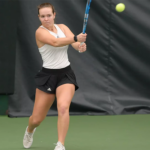Giovanni Claudio’s internship brought him full circle.
Claudio, who is graduating from UWM in summer 2022 with his bachelor’s in information science and technology, chose an internship in the fall of 2021 through the Nonprof-IT program.
The School of Information Studies set up the program to give students the opportunity to work with nonprofit organizations, which could benefit from their expertise in web design and social media.
Claudio selected Islands of Brilliance, an organization that works with people who are on the autism spectrum or neurodiverse (a more general term referring to atypical patterns of thought or behavior). He is an alum of the program, and they were happy to welcome him back during the fall semester of 2021.
“We are just so proud of him and what he has accomplished,” said Mark Fairbanks, the co-founder and executive director of Islands or Brilliance. Claudio and his team helped the organization update its website, improve search engine optimization and fine-tune the use of social media.
“He has developed great leadership skills and collaboration skills,” said Fairbanks. “We were all impressed.”
Testing skills in the real world
Claudio, in turn, was happy to be able to try out his skills in a real-world environment. (He did another Nonprof-IT internship in the spring of 2022.)
“It was a window into real life IT (information technology),” Claudio said. “It was my first time as a team lead.”
He had an interest in computers and computer games while he was growing up, Claudio said. “I just love working with computers.”
While some students on the autism spectrum are bullied and teased, he didn’t experience much of that personally, he said. But he welcomed the experience of taking an art and design course at Islands of Brilliance. “For people who are neurodivergent, it helps with education and socialization and gives them the opportunity to be themselves.”
A welcoming atmosphere
At UWM, he found a welcoming atmosphere and a group of friends. He shared some of his experiences in a video in the fall of 2021 about upcoming graduates.
The university gave him a chance to experience and learn more about the Milwaukee community and helped him academically and socially, Claudio said. He is a member of the Autism Spectrum Social Group.
“It gave me a foundation for socialization and an opportunity to meet people who are just like me,” he said. Claudio is also active with the DREAM (Disability Rights, Education, Activism, and Mentoring) organization.
He’s exploring opportunities in information technology after graduation. “I’m excited to be going out on my own.”
It’s a field with a lot of opportunities for people like him who are neurodiverse, Claudio said. He’s quick to point out that while many see IT as just about writing code or building websites, careers also involve project management and collaboration skills – similar to what he learned in Nonprof-IT.
Setting an example
Fairbanks said Claudio is an example of what Islands of Brilliance wants to encourage. The emphasis on project-based learning helps children and young adults on the autism spectrum develop their own unique ideas and creativity. The organization’s focus is on capabilities, not disabilities, he said.
Fairbanks and his wife, Margaret, founded Islands of Brilliance after their son Harry was diagnosed as autistic at age 3. Their doctor told them not to expect much from him and college was out of the question. Harry graduated from UWM in 2020.
Islands of Brilliance is part of a UWM research project, funded through a $149,487 grant from the National Endowment for the Arts. The research, led by Celeste Campos-Castillo, associate professor of sociology, and Nathaniel Stern, professor of art & design and mechanical engineering, is partnering with the Lubar Entrepreneurship Center in the ABLE (Autism Brilliance Lab for Entrepreneurship). The work is looking at how creativity in art and design can help prepare those on the autism spectrum for the workforce, and how the workforce can prepare neurotypical work environments for people living with autism.






